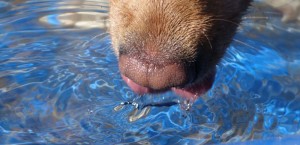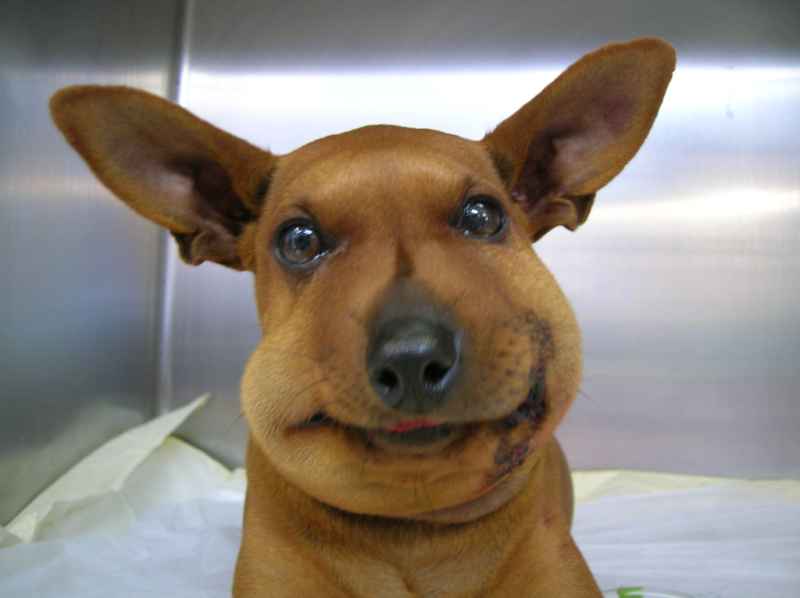Is My Dog Dehydrated?
July 27, 2015
Signs of Dehydration in Dogs Dehydration occurs when the total body water is less than normal. Usually it involves loss of both water and electrolytes, which are minerals such as sodium, chloride and potassium. Dehydration is caused by either a lack of food or water intake or an increase in water loss through illness or […]
Late Night Home Treatments
July 3, 2015
This information is meant as a guide for you in an urgent or late-night situation. It is not meant to replace the examination and diagnosis of a veterinarian. These treatments are generally safe when administered as described, but may not be appropriate in every case. Use this information at your own discretion. Vomiting – Remove food bowl […]
Treating Your Dog’s Diarrhea
October 4, 2014
Most of the time, diarrhea is caused by a dietary indiscretion or stressful circumstances, and is self-limiting. Diarrhea is not a disease; rather, it is a symptom of a dysfunction of the gastrointestinal tract (GIT).
Feline Constipation Remedies
September 20, 2014
Untreated cat constipation can lead to a chronic problem called megacolon, where the colon abnormally dilates and becomes too enlarged. As a result, the colon loses its ability to contract, which can cause obstipation – a complete blockage. To avoid health complications in your pet, consider the following home remedies for cat constipation: 1. Pumpkin […]
Simple Canine Constipation Remedies
September 19, 2014
Having recently been through this, I researched remedies for canine constipation and here’s what I found (in no particular order). Select ONE remedy to try. The combination of remedies can cause things to go the other way and create severe diarrhea which could result in dehydration. If the problem continues for more than a few days, if there’s blood […]
10 “Poison pills” for pets
April 10, 2012
Anyone who takes medication prescribed for someone else puts themselves at risk of illness or even death – and this applies to your pets, too! Although there are many medications used in both animals and people, the effects, doses needed, and other things aren’t always the same.
Snakebites and dogs
February 27, 2012
Snake bites tend to occur on the pet’s head or neck. Bites involving the trunk of the body have a poorer prognosis.
The Special Needs of the Senior Cat
November 15, 2009
Just as people are living longer than they did in the past, cats are living longer too. In fact, the percentage of cats over six years of age has nearly doubled in just over a decade, and there is every reason to expect that the “graying” cat population will continue to grow.
What Canine Stools Tell You About Diarrhea
June 10, 2009
Diarrhea is the passage of loose, unformed stools generally occurring in more frequent bowel movements. It is the most common sign of an intestinal disease.
Sick Cat Symptoms – How to Tell If Your Cat is Sick
June 6, 2009
e love our cats and always want to make sure they are feeling well and healthy, that’s why one of the main questions among cat owners is “how to tell if your cat is sick?”
Home Remedies for Dog’s Urinary Tract Infection
June 6, 2009
Urinary tract infection in dogs can be a recurring phenomenon and it might tire you to constantly take your dog to the vet. Consequently, you may wonder if a dog’s urinary tract infection can be treated with a homemade formula.
How to Clean Wounds on your Pets
May 29, 2009
Deep wounds that cut through the skin and into the flesh will need stitches within 2-4 hours to heal most effectively. Shallow wounds and minor cuts may only require home treatment, but will heal best with first aid.
Yeast Infection in your Dog’s Ears
May 28, 2009
A dog can be plagued with any type of infection on any area of the body, but usually yeast infection affects a dog’s ears more than any other part of the body. Dogs that have floppy ears don’t get enough air circulation and dogs that do not get enough sunlight are susceptible to dog ear yeast infection.
Basic Pet First Aid
May 15, 2009
Even with the best precautions and supervision, accidents can happen and it is crucial every pet owner has a good idea of how to administer basic first aid to their pet, as well as having a well-stocked and pet-relevant first-aid kit on hand.
Learn First Aid Care for Your Pet
May 14, 2009
Learn First Aid Care for Your Pet. Start by learning what types of emergencies your pet is likely to encounter.
Antibiotics for dogs
December 18, 2008
The goal with antibiotics is to hammer down the infection and not give it a chance to develop resistance before it is wiped out. This means that keeping the dog on the antibiotics long enough is critical. If a dogs starts to look better after a few days, do NOT take it off the drugs!














